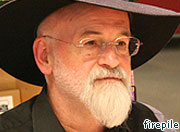Senior peers have accused the BBC of running an “orchestrated campaign” to change the law on assisted suicide in the wake of a controversial documentary on the subject fronted by Sir Terry Pratchett.
In a strongly-worded letter of complaint to BBC bosses, four peers said it was “not the job” of the Corporation to “become a lobbying organisation or a cheerleader for those who wish to change the law”.
And they added that the BBC has not made clear in its coverage over recent years that three attempts to change the law on assisted suicide in the House of Lords have been “lost by a significant margin”.
Balance
Monday’s programme, entitled Choosing to Die, followed Peter Smedley to Swiss suicide clinic Dignitas.
The programme was fronted by author Sir Terry Pratchett, who is a patron of pro-euthanasia lobby group Dignity in Dying.
In their letter about the programme the peers wrote: “Setting aside our repugnance that the death of a patient with motor neurone disease should be turned into a form of voyeuristic entertainment, the BBC has a duty to provide balanced debate.”
Indifferent
The peers, Baroness Campbell of Surbiton – herself disabled, Baroness Finlay of Llandaff, Lord Alton of Liverpool and Lord Carlile of Berriew, QC, added that the BBC has broadcast a number of programmes on assisted suicide in recent years.
But: “From the BBC’s coverage few viewers would realise that Parliament has had three votes in the House of Lords, following two full Select Committee inquiries, and that on all three occasions, attempts to change the law have been lost by a significant margin.
“The BBC, however, seems indifferent to parliamentary opposition, or the views of those who oppose a change in the law on grounds of public safety or for ethical reasons.”
Support
Earlier this week the Bishop of Exeter, the Rt Revd Michael Langrish, criticised the programme saying: “I want to see much more emphasis put on supporting people in living, than assisting them in dying.”
And Liz Carr, a disability campaigner, said: “I, and many other disabled older and terminally ill people, are quite fearful of what legalising assisted suicide would do and mean”.


